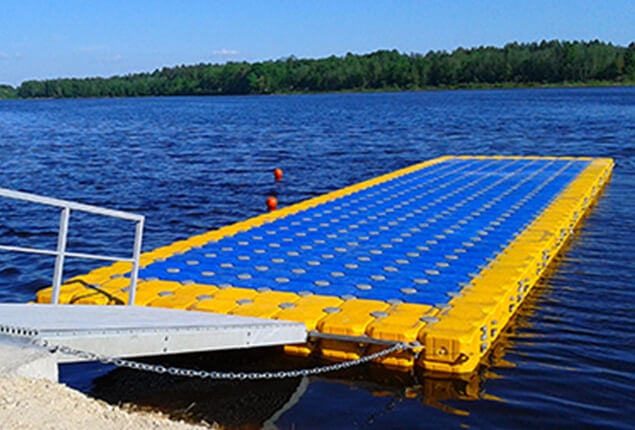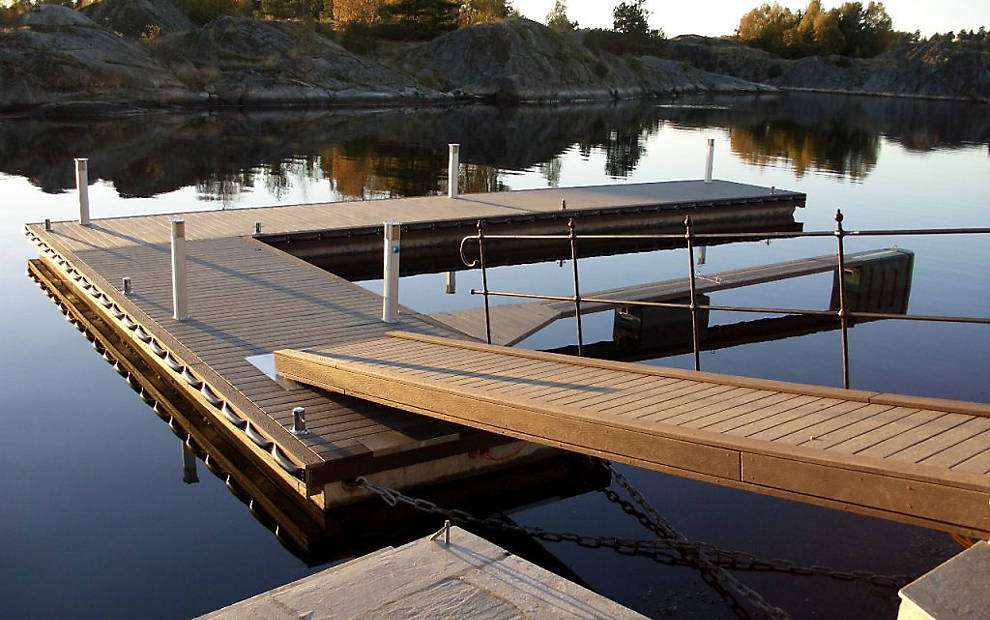Enhance Your Water Experience with Customized Floating Docks Designed for Your Way of living
Enhance Your Water Experience with Customized Floating Docks Designed for Your Way of living
Blog Article
Why Floating Docks Are the Perfect Service for Your Waterfront Needs
Floating docks present an engaging service for beachfront requirements, particularly as a result of their versatility to fluctuating water levels and their durable, modular layout. These structures not just boost performance for both leisure and business objectives however likewise offer customization options tailored to certain requirements. Their environmentally pleasant materials contribute to sustainability efforts. As we explore the multifaceted benefits and applications of floating docks, it becomes apparent why they stand out in the world of waterside infrastructure-- specifically when taking into consideration the lasting advantages they offer various stakeholders.
Trick Advantages of Floating Docks
The flexibility of floating docks deals many advantages for waterfront applications, making them a significantly preferred option among marina drivers and home programmers. Among the key advantages is their adaptability to varying water degrees, which permits them to continue to be useful in different atmospheres, including lakes, rivers, and coastal areas. Unlike traditional set docks, floating docks can climb and fall with the trends and seasonal modifications, guaranteeing constant ease of access.
Additionally, floating docks are typically much easier and less costly to keep and mount. Their modular layout helps with quick assembly, reducing labor prices and construction time. The products utilized in floating dock building are typically immune to corrosion, making sure durability with marginal upkeep.
Safety is an additional essential benefit; the resilient nature of these docks lessens the danger of accidents throughout boarding and getting off, making them particularly appealing for family-oriented centers. Their ecological impact is reduced than that of fixed structures, as they do not interfere with water communities. Jointly, these benefits position floating docks as an exceptional option for a series of waterside demands, aligning with both functional performance and ecological factors to consider.
Suitable Applications for Different Activities
Adaptability is a hallmark of floating docks, making them appropriate for a variety of tasks throughout different waterfront settings. These functional frameworks can function as suitable systems for leisure tasks such as boating, angling, and swimming. Their resilient nature enables easy accessibility to watercraft, making it possible for smooth embarkation and disembarkation, while also supplying a steady location for fishermens to cast their lines.
In business setups, floating docks help with the loading and unloading of items, accommodating both tiny and big vessels. They are specifically useful in areas with ever-changing water degrees, making sure that operations remain nonstop. In addition, floating docks can be used for waterside eating and enjoyment, supplying a breathtaking and one-of-a-kind experience for patrons.
Ecological applications are additionally significant; floating docks can work as observation systems for wildlife watching or as docking terminals for research vessels taken part in ecological studies. As marina expansions come to be a lot more common, these docks supply a useful solution for boosting ability without comprehensive land alterations. Ultimately, the convenience of floating docks makes them a favored choice for anyone seeking practical and effective beachfront remedies.
Style and Personalization Choices
Floating docks not only satisfy diverse tasks yet likewise supply an array of design and personalization alternatives that improve their performance and visual appeal. These flexible structures can be tailored to fit specific waterside requirements, whether for domestic, commercial, or leisure functions.
One secret facet of customization is the option of products. Alternatives range from high-density polyethylene to aluminum, each providing unique benefits in regards to durability and upkeep. Furthermore, the arrangement of the dock can be adapted to match different water degrees and environmental conditions, making certain stability and safety.
Layout features can include incorporated seats, railings, and lights, which not only boost use but also improve the appearance of the dock. Custom coatings and colors enable proprietors to match the dock with existing frameworks or individual choices, creating a cohesive look for the waterside.
Additionally, floating docks can be made with modular sections, allowing simple development or reconfiguration as requirements change. This adaptability is especially important for growing families or progressing industrial ventures. Overall, the look at this website comprehensive design and customization alternatives readily available make floating docks an extremely adaptable solution for any waterfront setting.
Installation and Maintenance Factors To Consider
Typically, effective setup and maintenance of floating docks call for careful planning and interest to detail. Prior to beginning installment, it is necessary to analyze the specific site problems, consisting of water depth, wave activity, and neighborhood policies. This initial assessment educates the option of materials and layout, making sure the dock will endure environmental anxieties.

Upkeep is similarly crucial to lengthen the life-span of the dock. Routine assessments need to be carried out to recognize damage, particularly on flotation protection tools, connectors, and outdoor decking. Cleaning up the dock periodically aids prevent the buildup of algae and particles, which can endanger surface area honesty and aesthetics.
Additionally, seasonal preparations, such as removing devices and safeguarding the dock throughout extreme weather, can prevent damages. By prioritizing correct setup and regular maintenance, owners can ensure their floating dock continues to be a practical and trustworthy waterside option for many years to come.

Ecological Impact and Sustainability
The environmental effect of floating docks is a vital consideration for waterfront tasks, as check that these structures interact directly with marine environments. floating dock builder. Unlike conventional set docks, floating docks minimize interruption to the substratum, enabling all-natural debris motion and decreasing erosion. Their design permits water flow under, advertising healthy marine atmospheres and sustaining neighborhood wildlife
Lots of floating docks are constructed from lasting materials, you could try here such as environment-friendly compounds and recycled plastics, which lower the carbon impact connected with manufacturing. Furthermore, modern designs incorporate features that improve ecological sustainability, such as absorptive surfaces that promote water purification and lessen contamination.
Floating docks also supply a suitable platform for environment restoration by supporting the development of marine vegetation and offering sanctuary for fish and various other aquatic organisms. By consisting of attributes like fish environments and immersed plantings, floating docks can boost biodiversity in the area.
On top of that, these frameworks can be designed to fit solar panels, supplying renewable energy choices that further lower their environmental impact (dock company). In general, floating docks represent a lasting solution that balances human use of beachfronts with the preservation of essential ecological communities
Final Thought
In final thought, floating docks present a extremely adaptable and sustainable solution for varied waterfront demands. Inevitably, the customizable features and capacity for expansion further solidify floating docks as a suitable choice for any type of waterside project.
Floating docks existing a compelling remedy for waterfront needs, especially due to their adaptability to fluctuating water degrees and their robust, modular design. Unlike typical set docks, floating docks can climb and fall with the trends and seasonal changes, making sure regular access.
Collectively, these benefits setting floating docks as a premium option for an array of waterside requirements, lining up with both operational efficiency and environmental factors to consider.
In general, the substantial design and personalization alternatives available make floating docks a highly adaptable remedy for any kind of beachfront setup.
Unlike conventional set docks, floating docks decrease disturbance to the substratum, permitting for natural debris movement and reducing disintegration.
Report this page